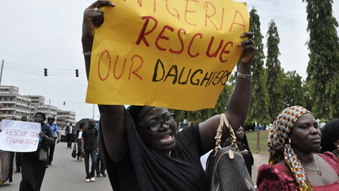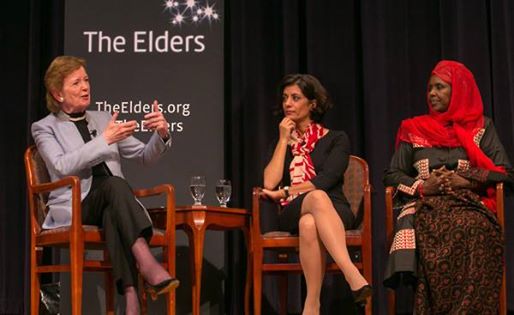Earlier this month, 200 girls were loaded into trucks and abducted from their private school in Chibok, a remote state of Borno in northeastern Nigeria. Various news sources including the BBC have reported suspicions that the Islamist group Boko Haram is responsible for the abduction. Obvious concerns surrounding the story include the government’s poor search and rescue efforts and the world media’s lack of ongoing interest in the story almost entirely. More invisible, however, is the connection between violence and education in the developing world.
[captionpix align=”left” theme=”elegant” width=”300″ imgsrc=”http://natoassociation.ca/wp-content/uploads/2014/05/last1.png” captiontext=”Protest march in Nigeria”]
Often times in North America, we say the phrase ‘Education is the key.’ We’ve been taught to believe that education is the answer to ending poverty in the developing world. Over the last decade we’ve seen a number of non-profit organizations along with celebrities like Oprah Winfrey (The Oprah Winfrey Leadership Academy) take up the cause. While education is a contributing factor in the fight against poverty, what many fail to understand is that school is the most common place for predatory violence, specifically sexual violence. While the story of the Nigerian girls may be uncommon due to the number of girls abducted, incidents of sexual violence, rape and abduction are all too common for many girls around the world, specifically in Africa.
Gary Haugen, President of International Justice Mission, a non-profit human rights organization that secures justice for victims of slavery, sexual exploitation and other forms of violent oppression, has just recently released a book entitled The Locus Effect. In his book, Haugen describes the ‘locus effect’ as the crushing impact of the plague of violence on the poor. He argues that addressing violence against the poor is a ‘precondition’ for achieving economic development that is actually meaningful for the poor in the developing world. Haugen does not deny that poverty is a complex problem exacerbated by various factors including hunger, employment and health concerns. He argues rather, that for decades we have underappreciated perhaps the most direct solution to the fight against poverty – addressing common, everyday, predatory violence. As Haugen states,
[captionpix align=”right” theme=”elegant” width=”300″ imgsrc=”http://natoassociation.ca/wp-content/uploads/2014/05/last2.png”]
“In the absence of effective law enforcement, schools will not protect girls from violence”
Gender-based violence in the developing world is not a new concept. There is hardly a day that goes by where one is not forced to confront a news article about war rape in the Congo, sex trafficking in the corners of Thailand or bride burnings in India. These can perhaps best be described as explicit violent acts that many people are aware of. Less visible are the more implicit acts of violence occurring on school grounds or the implicit violent acts that create further barriers to education for girls.
To date, little is known as to the reasons for the Nigerian abduction. Rumors surge that the girls may be forced to marry the militants or that the girls will be used as sex slaves. Once a woman of any age has had sexual relations with by someone other than her husband, she is regarded as impure and dirty, even if she has been forcibly raped or abused. Rebel groups use this cultural value to manipulate women into thinking that they are worthless, demoralizing entire communities through sexual violence against wives and daughters. Nigerian protest organizer, Hadiza Bala Usman told the BBC that she fears the abductions will discourage parents from sending their daughters to school in an area where few girls are given an education. Unfortunately, violence is an all too common barrier plaguing many parents in Africa.
Studies and experts alike are beginning to recognize the impact that violence has on the poor. In fact, addressing such violence may soon be considered the direct solution to poverty. For now, the parents of those Nigerian girls will spend sleepless nights praying for the day when the reformation of the public justice system will become a priority. Until then, I am reminded of how truly blessed I am for the ability to pursue my education without fear of lawless violence.




